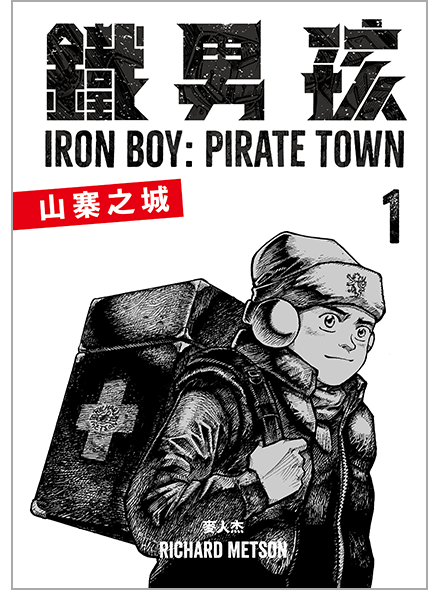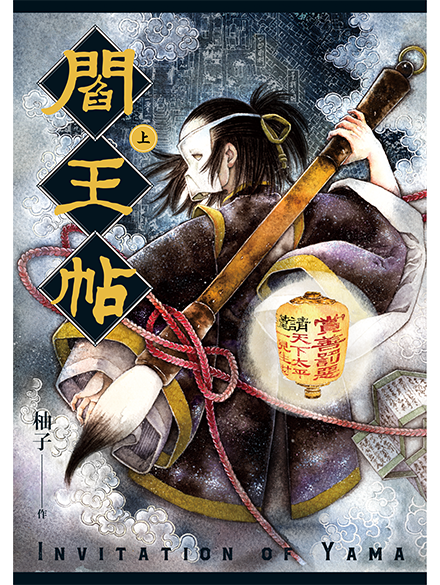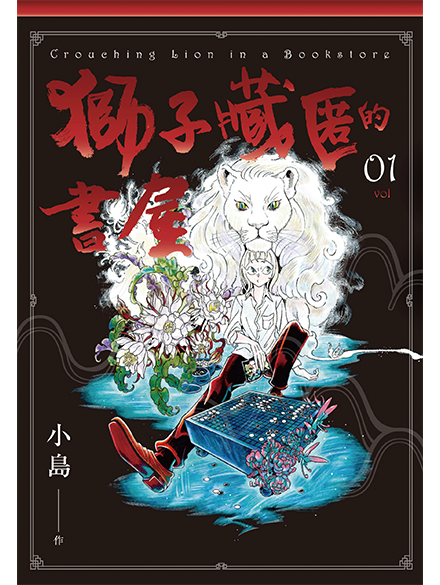(This article is a condensed version of one originally published at opnion.udn: https://opinion.udn.com/opinion/story/10124/5846196)
The 12th Golden Comic Awards were held on the 28 October 2021 in an annual prize ceremony that was one of the biggest events of the year in the world of Taiwanese comics. It wasn’t just about celebrating this year’s successes and highlighting everything that the industry has achieved over the previous 12 years, but it also served as a call to arms with a loose outline of how Taiwanese comics can continue to build on their existing momentum. After watching this year’s Golden Comic Awards, here are a few of what I think are the most important points to be aware of:
1. The Triumphant Return of Several Veterans from Taiwan’s “1990s Gold Age of Comics”
For many experienced supporters of Taiwanese comics, the glory of the golden age in the 1990s has always been something of a legend. It was an era where Taiwanese comics were besieged on all sides by a combination of piracy and long-term government suppression. A whole generation of creators used their unique skills to forge their own paths, drawing extensively on the success of Japanese manga and western comics but transforming these influences into their own distinctive styles with impervious momentum as they tried to pave a way out their oppressive environment. Even though the movement eventually dwindled due to a mix of complicated internal and external factors, that era still revealed the unlimited potential of Taiwanese comics.
Two names that are always mentioned from that era are Ren Zheng-hua, who won this year’s Special Contribution Award, and Richard Metson, whose new title Iron Boy: Pirate Town 1 was nominated for the 2021 Comic of the Year Award. Ren Zheng-hua’s sensitive and meticulous portrayal of human nature, especially when she depicts the subtle and often imperceptible space between likes and dislikes, has always been the subject of enthusiastic discussion among her supporters. The Special Contribution Award and the republication of her comics Drawn to Life and The Human Bun have introduced a new generation of readers to Ren Zheng-hua’s writing, where she has been exploring the desires and prejudices at the core of human nature since her debut comic Sea of Devil in 1990. Known as “Uncle Mai”, Richard Metson uses his naturally eccentric talent and unique western illustration style to roam between all kinds of different subject matters and build spectacularly immersive worlds one after the other. This time around, he was here with an entirely new book which still featured his usual trademarks but also seemed to contain slightly more references to the highs and lows of reality, a reflection of his own experiences over the years.

Iron Boy: Pirate Town by Richard Metson
The return of several veterans to the spotlight isn’t unique to this year’s awards but is part of a recent trend that’s still developing and can perhaps be traced back to the deaths of Chen Hongyao and Chen Uen. In addition to Ren Zheng-hua and Richard Metson, many of the comic creators who were precursors to the 1990s golden age have not only republished old works but also launched new ones. It is only through this kind of cross-generational reconnection that Taiwanese comics can build a robust, long-lasting system to give future generations the strength and support to grow.

The Human Bun by Ren Zheng-hua
2. Increasingly Diverse Illustration Styles and Storyline Subject Matters
When you line up all the comics selected for this year’s nominations it’s a treasure trove of work encompassing a myriad of different ideas, regardless of whether you’re looking at it in terms of source material or image composition. While it was possible to place each of these works in a certain category or genre, each comic broke new ground either through its storyline or illustration style to transcend the restrictions of the existing framework.
Chang Sheng has diligently created science fiction for a long time. After his standalone work Nine Lives Man: Time’s Wheel made the shortlist last year, he created Yan 1, an all-new series about a female superhero where he used his distinctive brush stroke style to explore the sense of remorse which is often present in superhero stories and has been a subtle theme running through his comics since Oldman in 2013. Dutchman in Formosa (Vol. 2) by Kinono was a sequel that readers had been eagerly anticipating for five years. Kinono didn’t just take the illustrations to the next level but also replaced the previous volume’s liveliness with a more melancholy tone as the narrative focus shifted from international trade disputes to the experience of indigenous Taiwanese people under colonialism.
.png)
Yan by Chang Sheng
Yuusharyaku 10 by BIGUN, Scrunchy by TaaRO, and Fantastic Tales of Splendid Blossoms by Monday Recover and Yang Shuang-Tzu all had very clear-cut attributes of genre fiction but if you looked closely at their content, you could see that each work deftly applied established components of genres in a way that made new ideas flourish within them. The techniques they used to express images and plot points meant that these works could all confidently hold their own among their respective genres both at home and abroad.
Netherwarrant by Yuzu, The Invisibles 1 by Shin Yan, Hell Parade by Buke and The Lion in the Manga Library by Xiaodao all used awe-inspiring illustration styles to tell stories in a way that didn’t just demonstrate their incredible skills but also captured the cohesion and explosiveness of their personal styles. In every frame of every page, these four comics proved that you don’t necessarily need highbrow illustration styles to tell a great story that moves readers. Similarly, people who were fans of comics during the 1990s golden era always emphasised the diverse stories and individual styles of the illustrators at the time, so perhaps we might be unknowingly experiencing another peak in Taiwanese comics.

Netherwarrant by Yuzu

The Lion in the Manga Library by Xiaodao